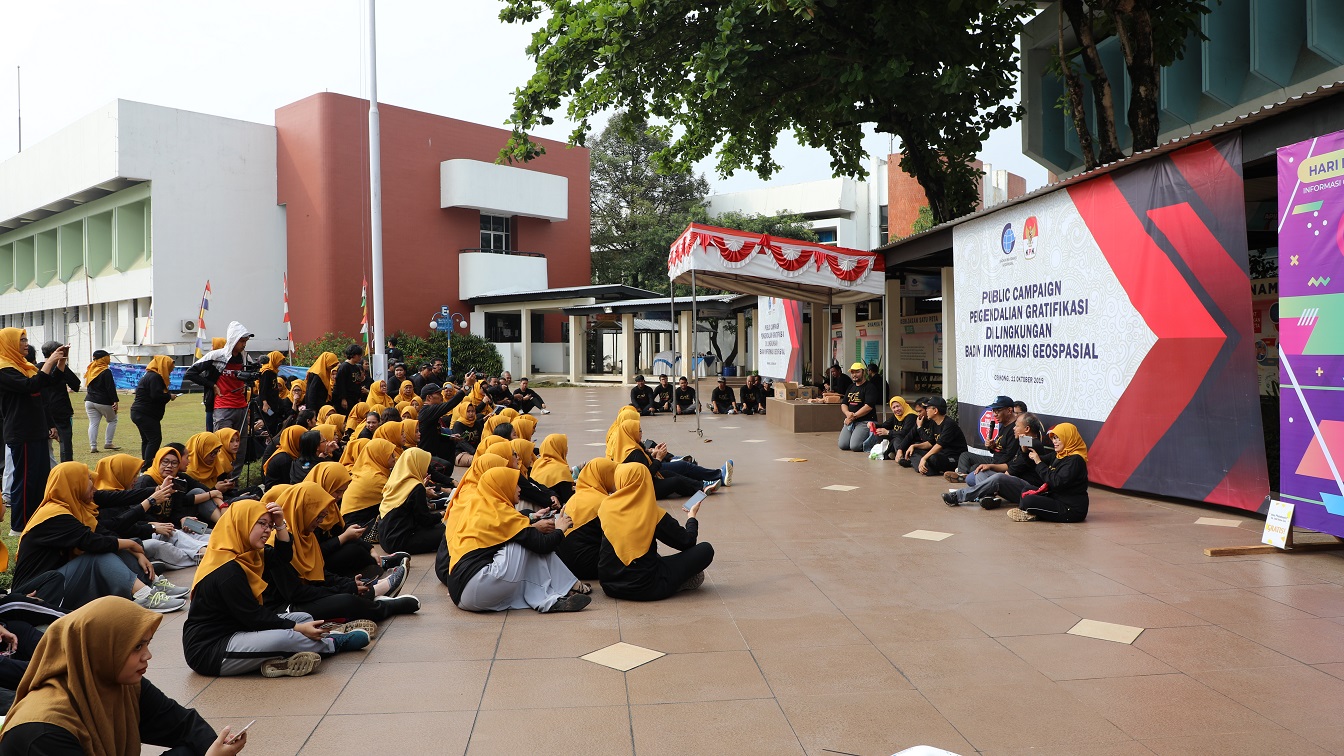Cibinong, Geospatial News - Not felt on October 17, 2019, the Geospatial Information Agency (BIG) celebrated its 50th (fifty) year anniversary, in welcoming the series, BIG organized socialization of gratification control within the State Civil Apparatus Geospatial Information Agency (BIG) ).
The activity that took place on Friday (11/10) was a real attempt by BIG as a Government Institution to reject and control everything related to gratuity.
Present at the event this time was the Main Secretary of BIG Ir Muhtadi Ganda Sutrisna MM, along with several other high-ranking officials, in his direction Ganda, said that the importance of maintaining health in the work environment, besides maintaining the integrity of employees especially the State Civil Apparatus (ASN) is important to be implemented, this because ASN is a public servant who needs to prioritize excellent service aspects.
"As ASNs, we must refuse or report if we accept gifts related to work (gratification), this is the commitment of ASNs as servants of the country," said Ganda.

Gratuity itself can literally be interpreted as giving in the broadest sense, which includes giving money, goods, discounts (commissions), commissions, loans without interest, travel tickets, lodging facilities, travel, free medical treatment, and other facilities. The gratuities were received both domestically and abroad and which were carried out using electronic or non-electronic means.
Based on Law No. 28 of 1999, Chapter II article 2, state administrators required to report gratuities include State Officials at the State Highest Institution, State Officials at the State Higher Institutions, Ministers, Governors, Judges, echelon-level officials, as well as officials within the government.
Gratification control activities in government agencies have been carried out through the application of the Gratification Control System (SPG) pioneered by the KPK. This system supports the realization of good governance. This system encourages partner agencies to implement SPG actively with the assistance of the KPK. As a continuous program, the SPG consists of several stages of activities namely analyzing the level of corruption vulnerability, signing anti-gratification commitments, making gratification control rules within the agency and establishing a Gratification Control Unit (UPG), after which it routinely carries out SPG monitoring and evaluation. Successful implementation of each stage largely determines the level of gratuity understanding of employees/officials in partner agencies, as well as increasing their compliance in rejecting or reporting acceptance of gratuities.
To date, there are 180 ministries, institutions, government organizations, including the KPK, which have implemented SPG at various stages. These include Ministries, SOEs, State Higher Institutions, and Local Governments. Some agencies that are more advanced in the application of SPG, have formed UPG as a vehicle for forwarding gratuity reports to the KPK and disseminating information about gratuities to all employees.
Gratification control activities are dynamic activities, this means there will always be new things that can enhance the effectiveness of these activities. Several improvements have been made to close the gratification gap, including determining the standard limits on the value of gratuities which are prohibited by state administrators and public servants, increasing legal protection for gratuity reporters and strengthening the legal basis for the environment of gratification control in government institutions. (/ AR)
